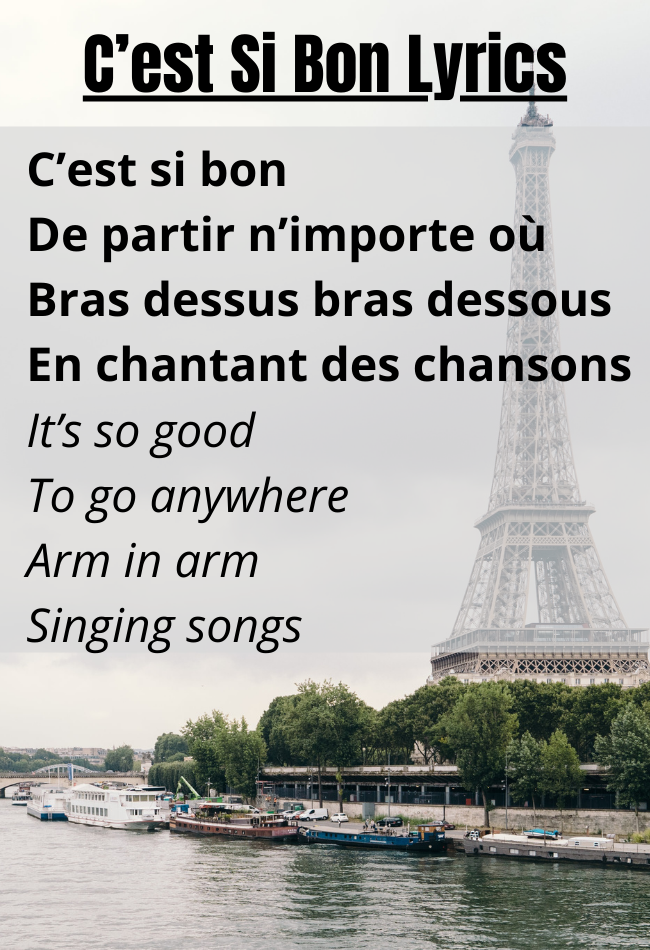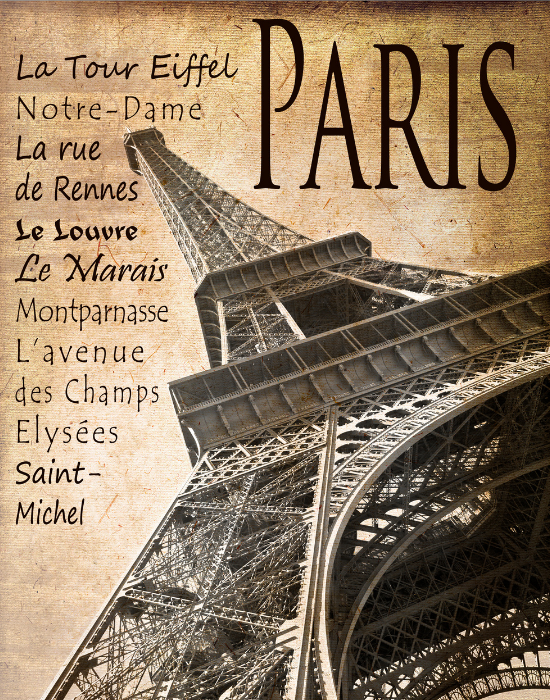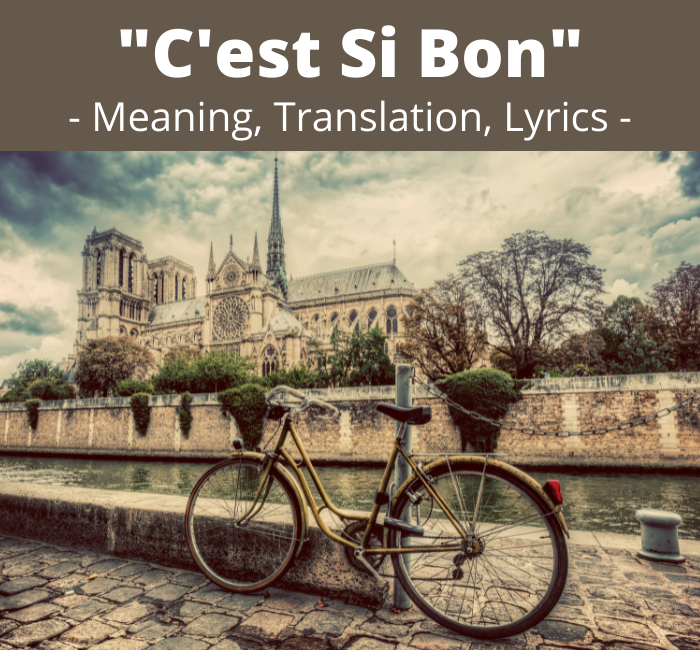The song, “C’est Si Bon” (pronounce ‘say see-bɔ̃) was written in 1947 Henri Betti and later made famous in 1948 by the legendary French singer, Yves Montand. The meaning of “C’est Si Bon” is “It’s So Good”. The song became one of the most famous French songs of all time with English versions sung by Nat King Cole in 1957 and Bing Crosby in 1961.

Song background
Towards the bottom of this post you can listen to C’est Si Bon on YouTube and Spotify and follow along with the French lyrics and English translation.
The song’s lyrics reflect the gaiety and enthusiasm of the post-World War II period. They depict a scene of happiness with a couple walking arm in arm in the street and attracting the gazes of envious onlookers.
The lyrics further depict wishes to travel spontaneously, sing songs and illustrate fanciful images of luxury and wealth including Cadillac cars and yachts.
Song lyrics analysis
Si bon, tellement bon
“Si bon” and “tellement bon” are used throughout the song’s lyrics. Both “si” and “tellement” are synonyms for “so”.
For example, “Elle est si belle” and “Elle est tellement belle” both mean “She so beautiful”.
N’importe où, n’importe quand
“N’importe” appears twice during the song. The first instance is towards the beginning: “C’est si bon de partir n’importe où” (It’s so go to go anywhere).
The second instance is towards the end of the song. “N’importe quand”. The word “N’importe” means “any”. This lesson covers expressions with n’importe in detail.
Bras dessus bras dessous
“Bras dessus bras dessous” is an expression and translates literally to “Arm over, arm under.” The meaning of the expression is “arm in arm”.

Guetter
The verb “guetter” means to watch or look out for. We translated it loosely to “to look”. Thus, we translated “C’est si bon de guetter dans les yeux” to “It’s so good to look into our eyes”.
Un frisson
“Un frisson” translates to “a shiver”. In the context of the song, we translated “Un espoir merveilleux qui donne un frisson” to “A marvelous hope that gives the chill”.
Jusqu’au cou
“Jusqu’au cou” is an expression that translates to “up to one’s neck”. The song’s lyrics depict an image of having endless jewels: “Des bijoux jusqu’au cou” (jewels all the way up to your neck).
Il sera très bon
The song ends with the line, “Il sera très bon”. This is the future tense of the verb être (to be). This lesson outlines the French future tense in detail.
C’est Si Bon lyrics and translation
C’est si bon
De partir n’importe où
Bras dessus bras dessous
En chantant des chansons
C’est si bon
De se dire des mots doux
Des petits riens du tout
Mais qui en disent long
En voyant notre mine ravie
Les passants dans la rue nous envient
It’s so good
To go anywhere
Arm in arm
Singing songs
It’s so good
To tell each other soft words
Little nothing-at-alls
But are said for a long time
Seeing our happy faces
People in the streets envy us
C’est si bon
De guetter dans ses yeux
Un espoir merveilleux
Qui donne un frisson
C’est si bon
Ces petites sensations
Ça vaut mieux qu’un million
C’est tellement, tellement bon (si bon, si bon)
C’est bon (si bon, si bon)
Voilà, c’est bon (si bon, si bon)
It’s so good
To look into our eyes
A marvelous hope
That gives the chill
It’s so good
These little feelings
That are worth a million
It’s so, so good
It’s good
There, it’s so good
Les passants dans la rue (si bon, si bon)
Bras dessus bras dessous (si bon, si bon)
En chantant des chansons (si bon, si bon)
Quel espoir merveilleux (si bon, si bon)
C’est bon (si bon, si bon)
Je cherche un millionaire (si bon, si bon)
Avec des (si bon, si bon)
Grandes Cadillac car (si bon, si bon)
Mink coats (si bon, si bon)
Des bijoux
Jusqu’au cou, tu sais? (si bon, si bon)
C’est bon (si bon, si bon)
Ces petites sensations (si bon, si bon)
Peut être quelqu’un (si bon, si bon)
Avec un petit yacht, non? (si bon, si bon)
People in the streets
Are in arm
Singing songs
What a marvelous hope
It’s so good
I’m looking for a millionaire
With
With big Cadillac cars
Mink Coats
Jewels
All the way up to your neck, you now?
It’s good
These little feelings
Maybe somebody
With a little yacht
Ah, c’est bon (si bon, si bon)
C’est bon, si bon (si bon, si bon)
Vous savez bien que j’attendrai quelqu’un
Qui pourrait m’apporter beaucoup de loot
Ce soir (si bon, si bon)
Demain (si bon, si bon)
La semaine prochaine (si bon, si bon)
N’importe quand (si bon, si bon)
C’est bon (si bon, si bon)
Si bon
Il sera très (si bon, si bon)
Crazy, non? (si bon, si bon)
Voilà, c’est tellement bon
Ah, it’s good
It’s good, yes it’s good
You know that I’ll wait for somebody
Who can bring me lots of loot
Tonight
Tomorrow
Next week
Whenever
It’s good
So good
It will be
Crazy, right?
There, it’s so good
Listen to C’est Si Bon On YouTube & Spotify
Here’s Yves Montand singing C’est Si Bon on YouTube:
Here you can listen to on Spotify:
More French song lyrics lessons by David Issokson

